Halloween
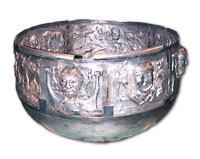
Halloween's Celtic Roots
Folklorist Jenny Butler talks about the Celtic feast Samhain and its relationship to Halloween, exploring how the past and present mix in the night of costumes and jack o' lanterns
Celtic Sacrifice
Grim deposits of butchered bones attest ritual slaughter by Galatians at Gordion in the 3rd century B.C. Are there connections to divination rituals and Samhain?
Vampires
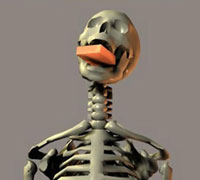
Exorcising a Plague Vampire
Matteo Borrini, who recently excavated an "exorcised" skull from a 16th-century grave on the Venetian island of Lazzaretto Nuovo, discusses the reality behind belief in malicious, pestilent plague vampires
The Vampire of Lesbos
Eight-inch iron spikes nail down the identification of a 19th-century vampire burial near Mytilene
Zombies
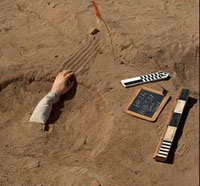
Archaeology of the Undead
Zombie expert Max Brooks--author of The Zombie Survival Guide: Complete Protection From the Living Dead and World War Z: An Oral History of the Zombie War--explains humanity's oldest struggle
Zombie Attack at Hierakonpolis
Weighing the evidence for and dating of a Solanum virus outbreak in early Egypt, archaeologist Renee Friedman and her colleagues look at clues from the past and establish protocols for containing cases in the future
|
Witches
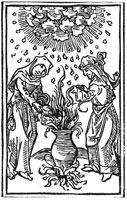
Witches of Cornwall
Macabre evidence of witchcraft surfaces in an archaeologist's front yard as excavations reveal pits lined with skins of swans, and even a black cat, and filled with swan's eggs. And, in a nearby spring-fed pool lined with white quartz, a hodgepodge of offerings including part of a cauldron
An American Witch Bottle
Discovery of a mid-18th-century witch bottle in Pennsylvania proves that practicing witches traveled to the colonies from England
.jpg)
Opening a Witch Bottle
For the first time, a witch bottle, buried in the 17th century to ward off spells, has been opened under laboratory conditions
Fine Wine & A Piss-Poor Vintage
Two corked 17th-century wine bottles have yielded strikingly different contents
Magic & Curses
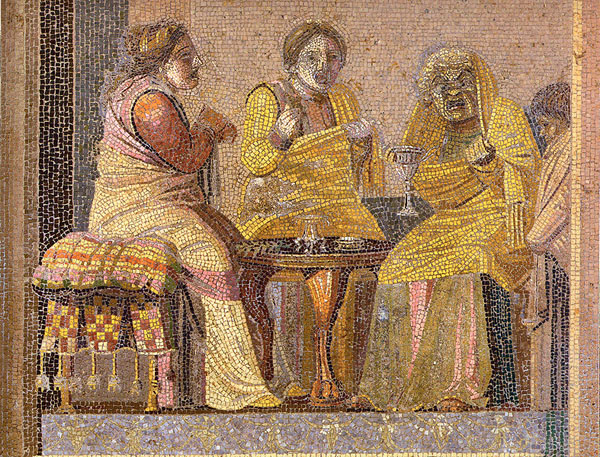
When Spells Worked Magic
In ancient times, a curse could help you win in the stadium or in the courts, and a plea addressed to a demon could bring you the woman of your dreams
Curse of the Stolen Cloak
A rare Roman-era curse tablet found in England asks that the Celtic god Maglus punish a thief
Curses of Caesarea
Why were 50 curse tablets buried at the headquarters of the Roman governor of Judea?
Curse of the Balsam Cookers
What was the secret protected by a curse inscribed on the mosaic floor of an ancient synagogue on the shores of the Dead Sea?
| 
